The idea of feeding your baby tasty foods would seem pleasing initially, but there might be exceptions; which is why you would want to keep a few food items on hold. Beginning with solids is one of the biggest steps in a baby’s first year of life. Since babies are curious by nature, they would have a tendency to put everything they can hold with their hands, in their mouth. As a parent, you could let the baby try new foods, but it is important that you do not feed some foods as they could cause medical issues at least in the first year of weaning them out. This is because babies have delicate digestive systems, and foods that don’t suit their system might lead to the development of food allergies. As a new parent, it’s necessary for you to know which foods are safe and unsafe for your child. Let’s take a look at some food items that you might think are safe for babies, but in reality, they are not. Read on to know more.
12 Foods You Should Avoid for Your Baby
As soon as your baby reaches the age of 6 months, it is time to introduce him/her to a variety of textures and flavours. Since this is an age of curiosity, both for the parents and the baby, do not feed the baby every fancy food you have access to. Here’s a list of the foods you should avoid feeding your baby:
1. Honey
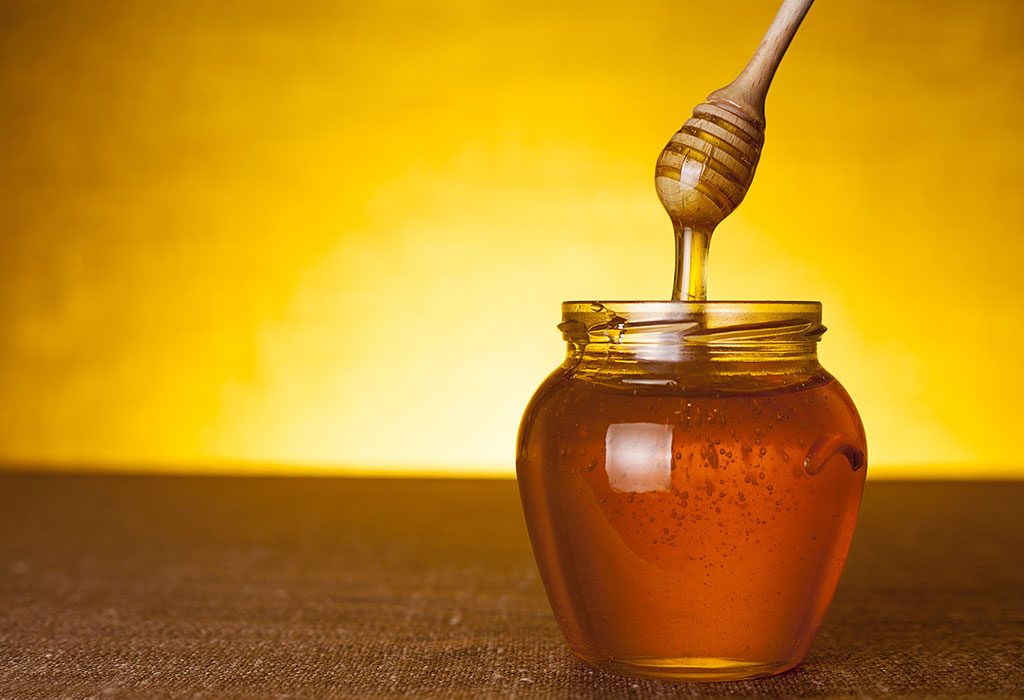
Honey is sweet and natural! Yet there are chances of it harbouring the bacteria Clostridium botulinum, which produces a toxin called botulinum that can cause lethargy, weaken the suckering, weaken the muscles and cause constipation in babies. And the entire time, your baby will show signs of irritation and dizziness. The infection is rare but affects infants under the age of 1, which is why you must refrain feeding your little one honey until the first birthday bash.
2. Cow’s Milk
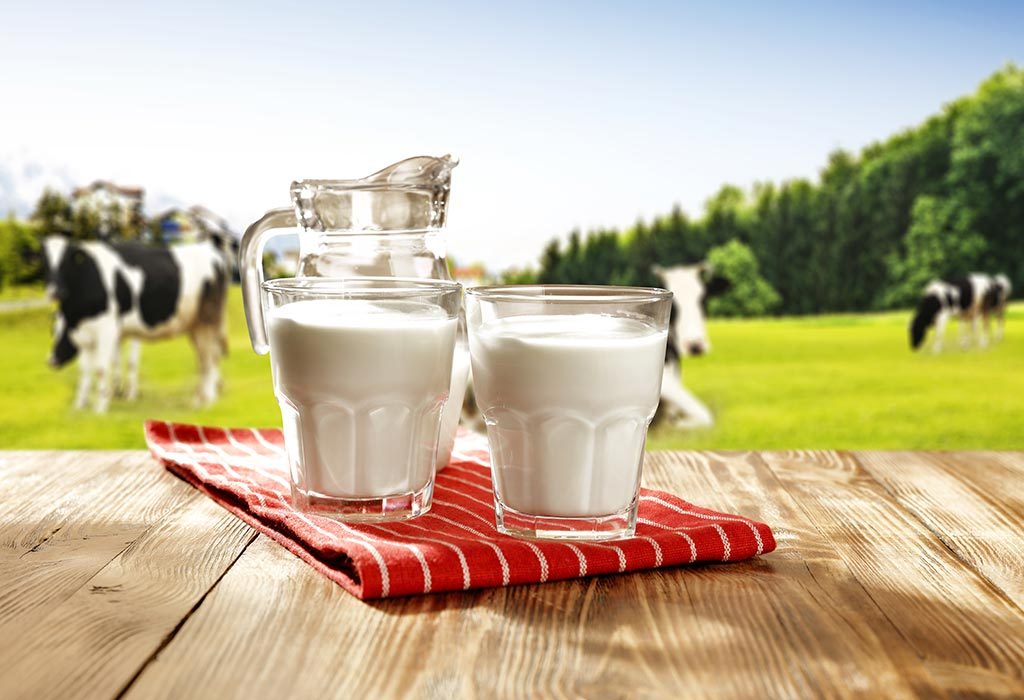
As widely known, breast milk is the best source of nutrition for your baby. With all the nutrients and enzymes, breast milk is an absolute healthy meal for your little one. Cow’s milk, however, has a higher lactose content that might affect your baby’s little tummy. Therefore, cow’s milk can be avoided until the baby turns a year old. After that, it is better to use cow’s milk as it is easy to digest and have nutrients that are important for your baby’s growth.
3. Peanut and Peanut Butter
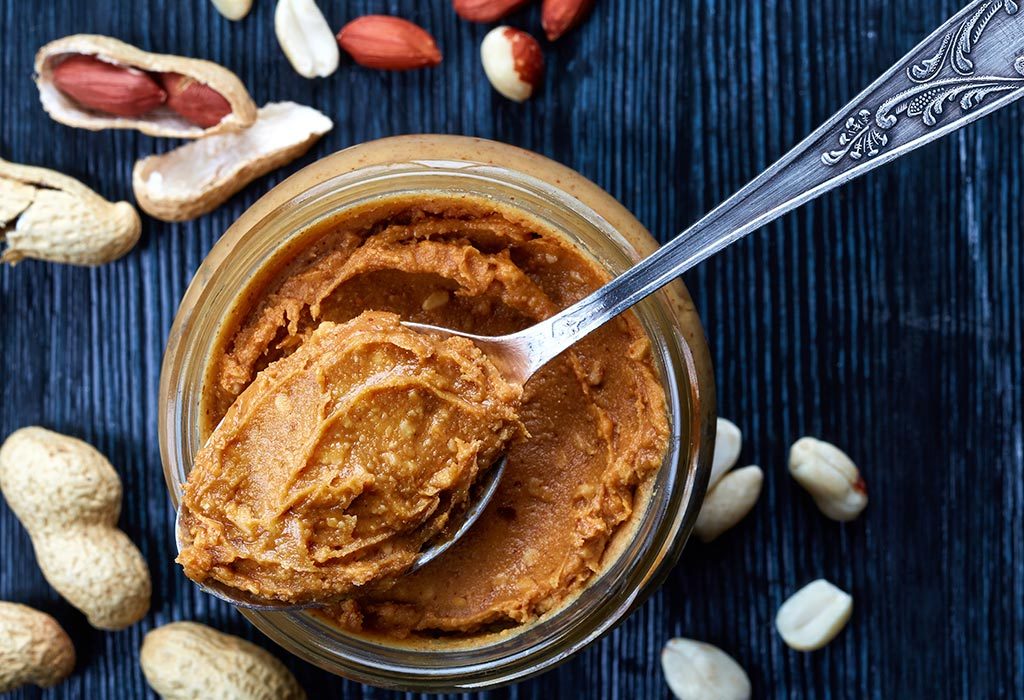
Tasty, healthy, and full of protein! Peanut butter is every kid’s favourite, but it all depends on how early the parents want to introduce it. A good suggestion would be to go through an allergy test in case the family holds a nut allergy. Peanuts are a choking hazard. If you do want to feed peanuts to your baby, you may ground them into a smooth puree to make peanut butter and then feed it to him/her in small quantities. This needs to be followed stringently for all children under the age of four.
4. Sea Food and Shellfish
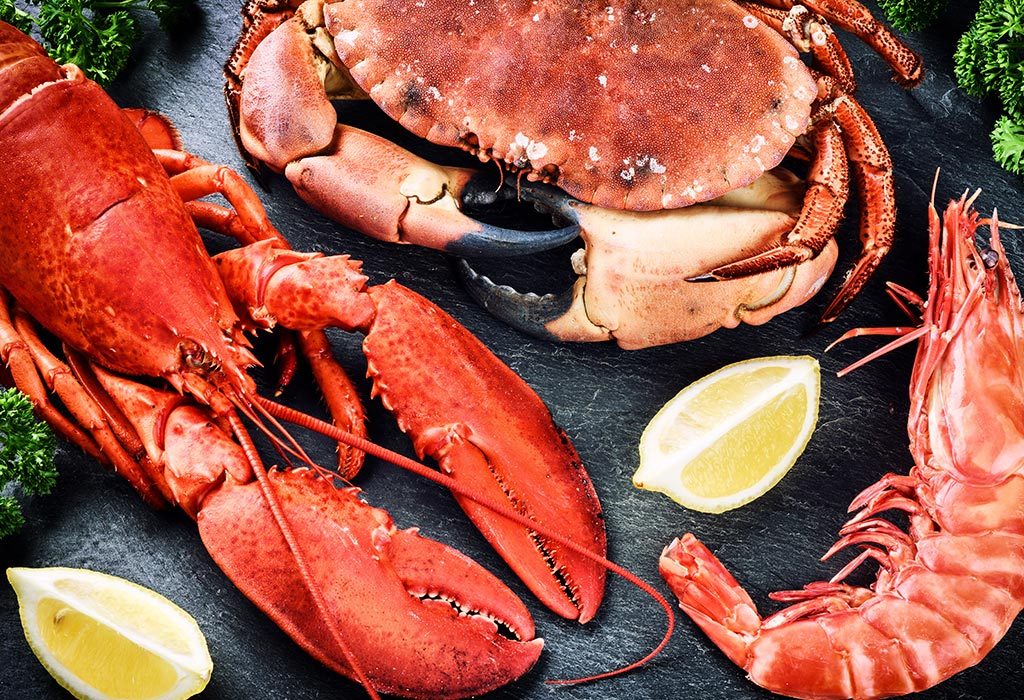
Seafood, especially shellfish like shrimps, lobsters, etc. can cause allergies in infants. You can feed seafood to your baby after they turn 1 or 2 years old to avoid a reaction. Some fishes like tuna, shark, and mackerel have high levels of mercury. These should be avoided completely no matter how old your baby is. When your baby has crossed the 2-year mark, and if you wish to feed him/her seafood, you may try beginning with white fish such as cod, and flounder. Always check for reactions and hygiene before giving it to your baby, and be careful about how frequently you feed your baby; once a week is ideal. Consulting a paediatrician is strongly suggested to prevent any allergies.
5. Chocolate
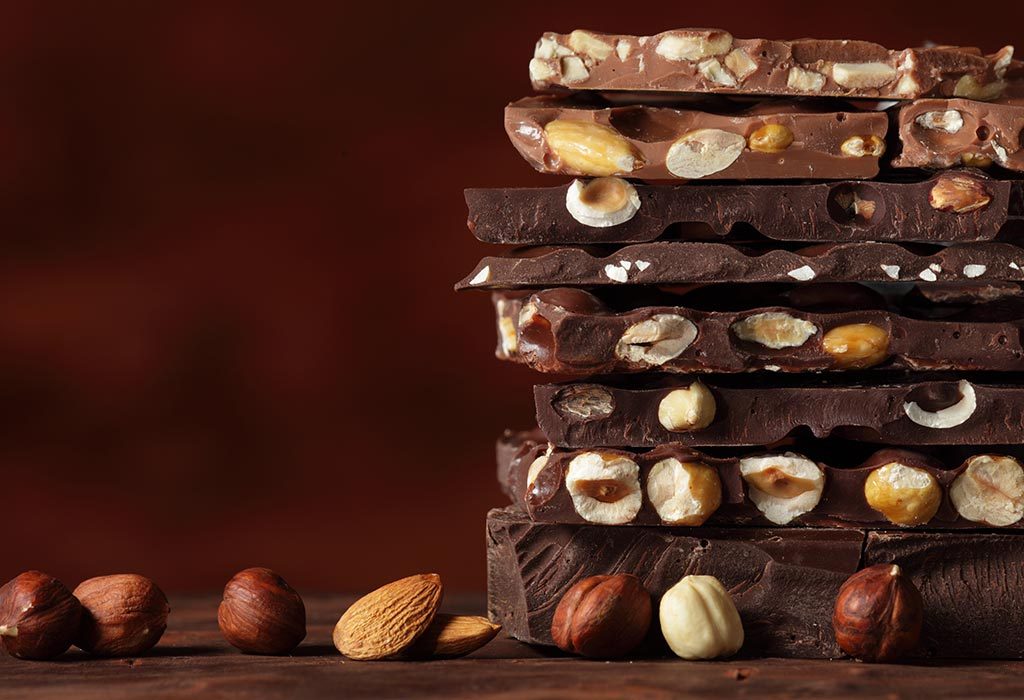
Chocolate is one of the most unsafe foods for babies, as it contains caffeine. You would never want to feed your infant caffeine, would you? Digesting solids is yet another milestone babies go through in their first year, and you need to make sure that the little ones are far from any tummy-trouble. Also, chocolate has a lot of sugar content, which is not suitable for your baby until he/she turns a year old, after which it should be fed in moderation.
6. Egg Whites

Egg Whites are full of vitamins, proteins, and minerals. They can be fed in moderation to your baby if he/she does not develop allergies. Gulping down egg whites at an early age can cause irritation, rashes and even trigger the digestive system and lead to diarrhoea. Having said that, egg whites can be started after 1 year of age, after checking for allergies.
7. Canned Fruit Juices
Fruit Juices contain a plethora of healthy elements and come in delicious flavours. However, canned fruit juices have preservatives which are not safe for your baby to consume. A good practice is to consult a paediatrician before introducing fresh fruits/ fresh fruit juices to infants and completely avoid canned juices.
8. Berries/Citrus Fruits
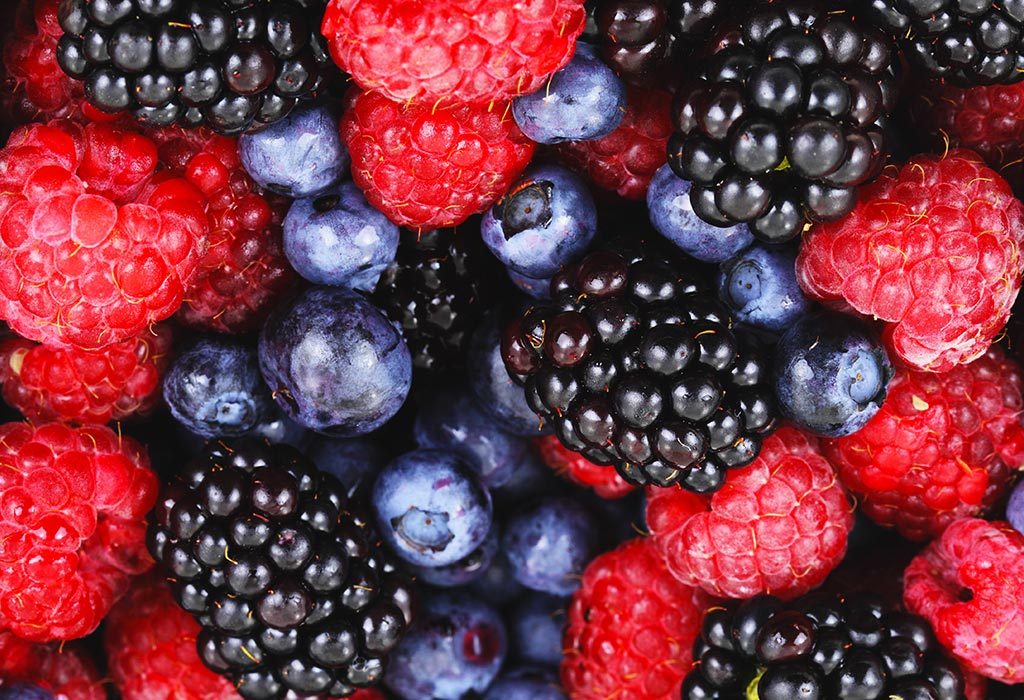
Although citrus fruits and berries are essential for our bodies, strawberries, blueberries, blackberries, raspberries, oranges, limes, etc. have high levels of acid and Vitamin C which can cause an iffy stomach and even lead to rashes in the diaper area. A good suggestion is to wait for a year or so, or maybe juice up the fruits and dilute them well to prevent allergic reactions or upset stomach.
9. Wheat
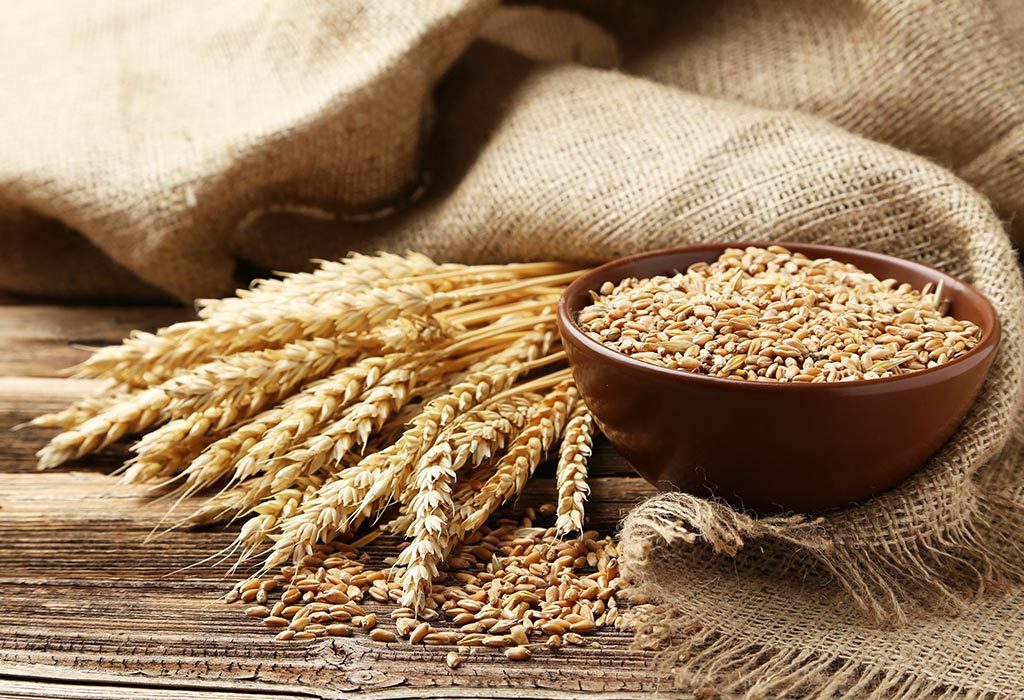
Wheat can be given after your baby completes 7 to 8 months and starts tolerating weaning foods well. You must, however, check for wheat allergy or gluten allergy (Celiac disease) in the family or check for signs of allergy in your baby after feeding him/her wheat after the age of 7 or 8 months.
10. Raw vegetables
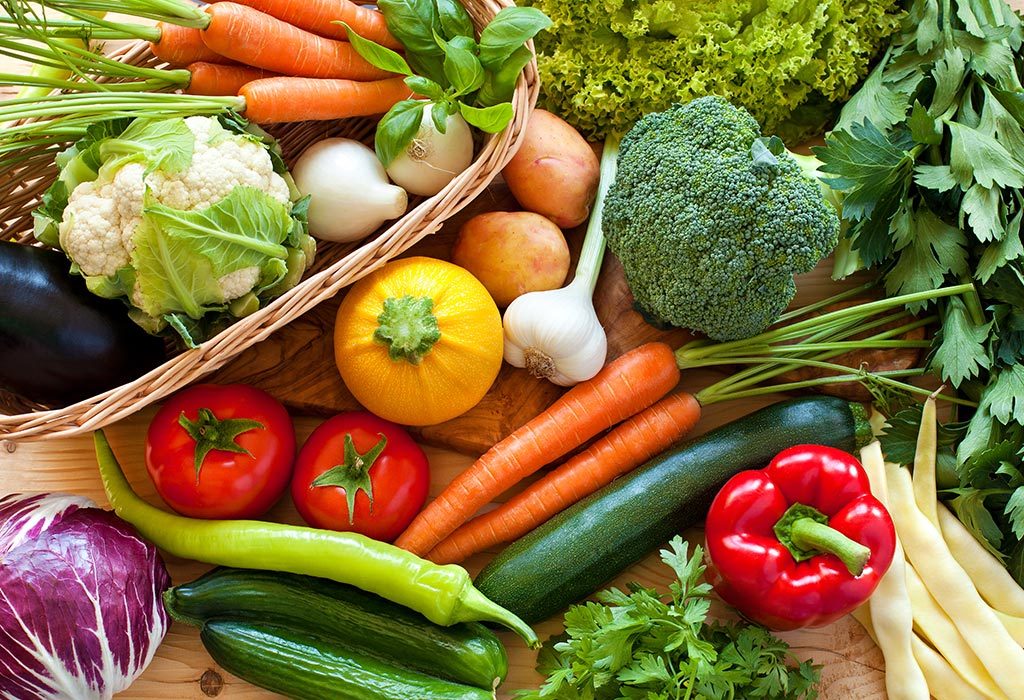
There are two major reasons why you should not feed raw vegetables to your baby.
- They are a choking hazard.
- They contain high levels of nitrates.
Raw vegetables and strong-flavoured foods should be avoided for babies less than 1 year old. Light and seasonal vegetables can be given after 6 to 7 months of age, but only if your baby tolerates weaning foods well.
11. Grapes/ Raisins
Grapes are a big no-no for babies till they can chew their food properly and are old enough to not choke on them. The skin, the size and firmness of grapes can lead to the fruit getting stuck in your baby’s food pipe even when it is cut in small pieces.
12. Sugar

Sugar shouldn’t be a part of your baby’s diet until your baby turns one year old as it can affect his/her appetite and disrupt the diet. Your baby could also start resisting breast milk if sugar becomes a part of the diet early on. This mostly happens due to preference to taste. So, it is better to delay introducing sugar into your baby’s diet. When your little one is a year old, you can start with natural sugars like honey and gradually move to sugar, but you should feed it in moderation to avoid child obesity.
Your baby’s diet should be suitable for his/her digestive system. If you don’t want your little one to witness an iffy tummy, you should consult a paediatrician who may help you choose the right foods and also recommend more foods you need to avoid for your baby.
References:
- Familyeducation
- Whattoexpect
- Momjunction
- Babble









